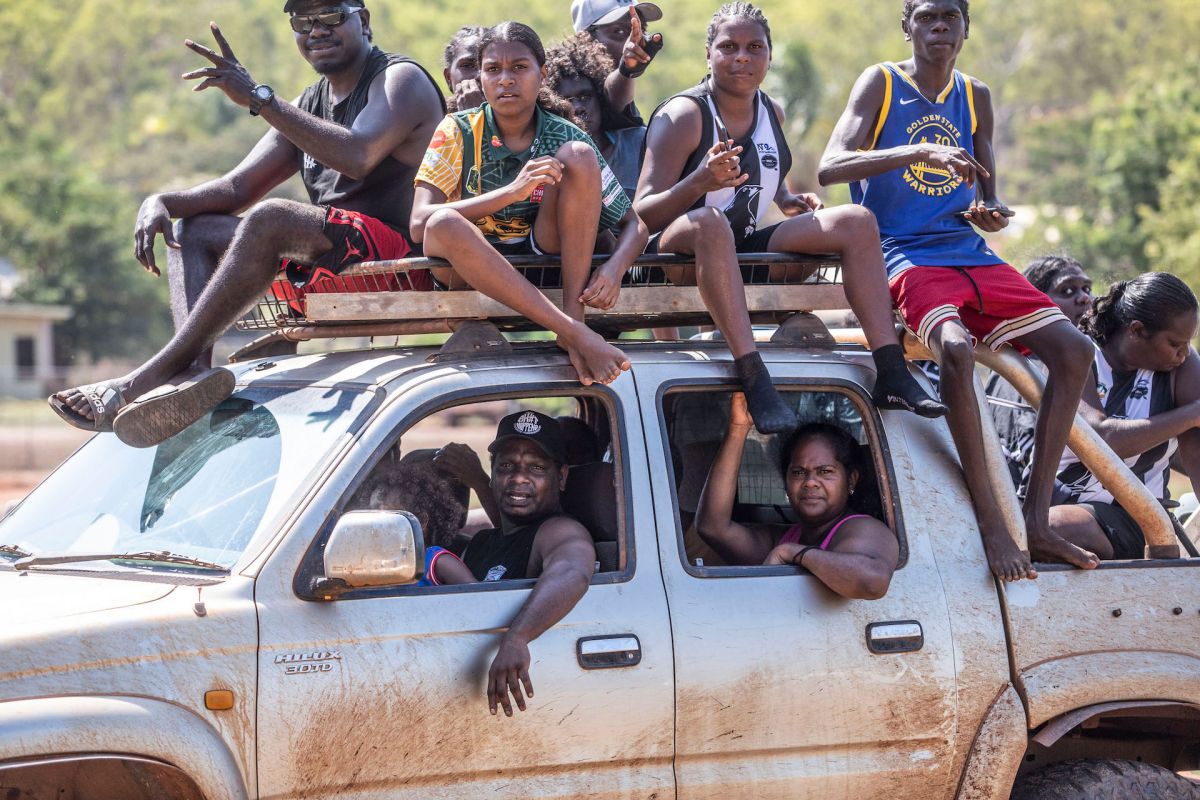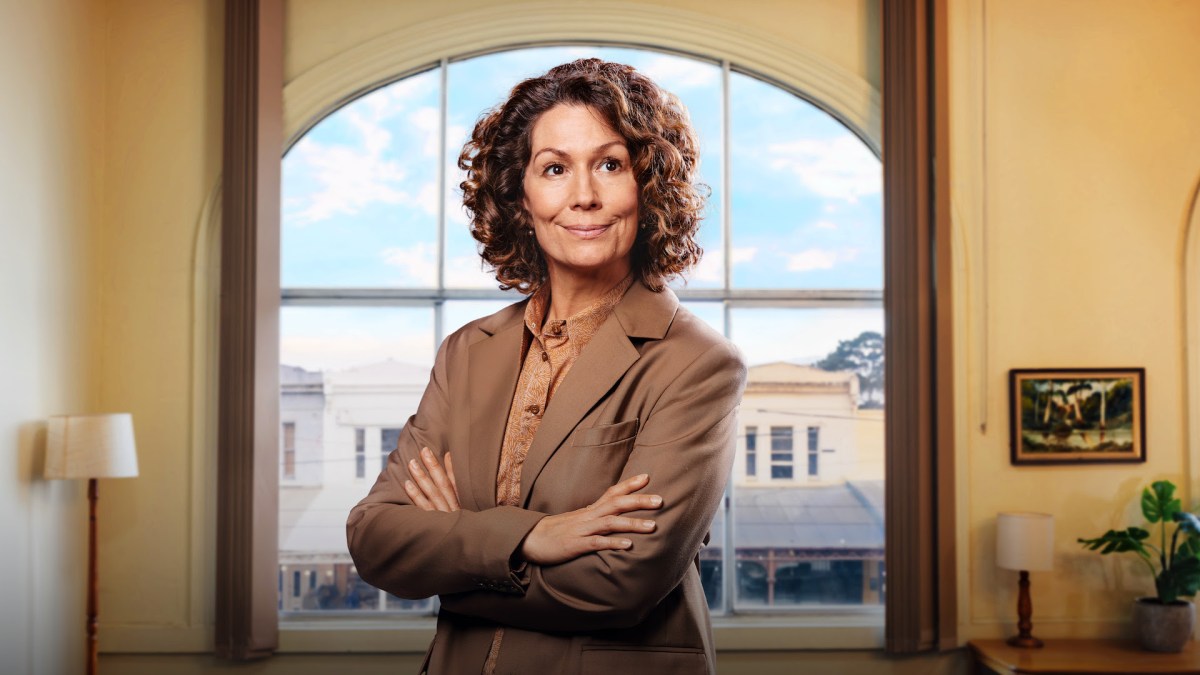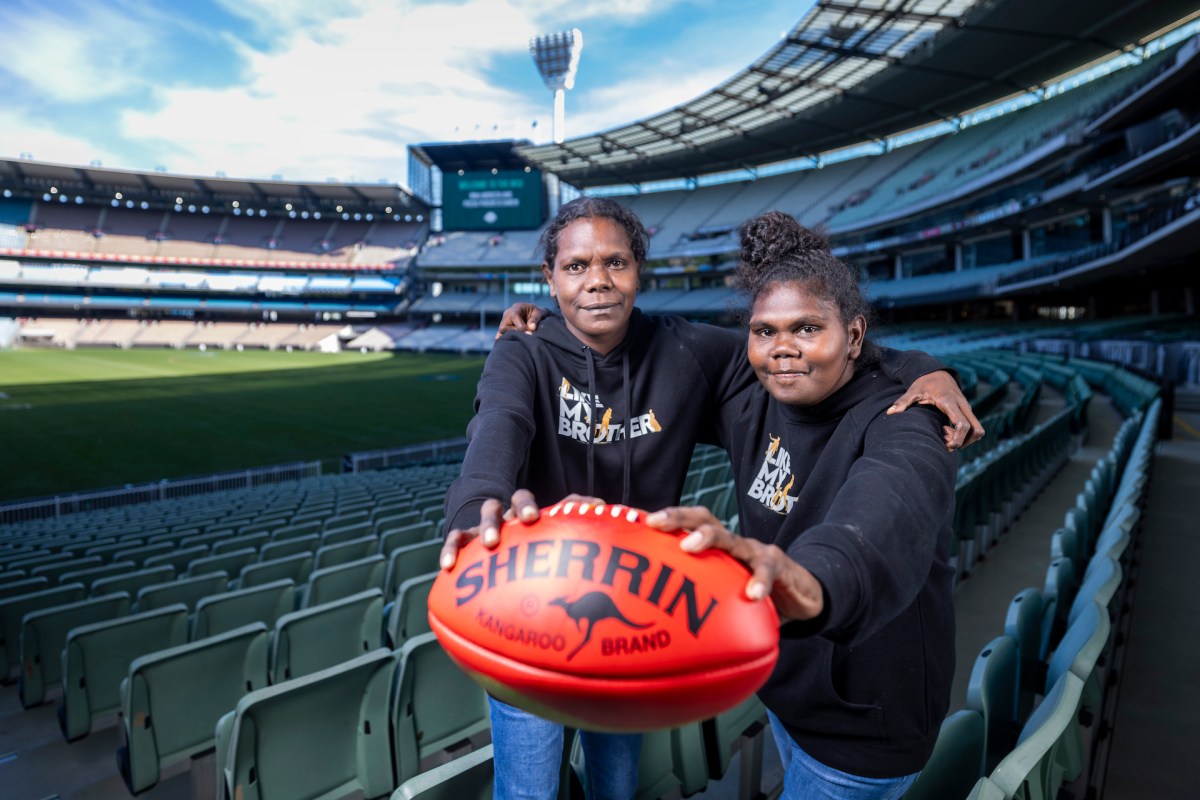Shot over a six-year period, Like My Brother revolves around four young Tiwi Islander female football players who love their Aussie Rules football and want to take it further.
Julianna, Arthurina, Freda and Jessica have grown up watching their talented male friends and family leave the Islands to take advantage of footy opportunities on the other side of the continent, but never imagining those same opportunities could be offered to them.
When talent scouts from Essendon Football Club in Melbourne witness their skills and invite them to travel south to train and play professionally, a whole new world opens up. But this is not a film about fairy tale endings.
Written by Sal Balharrie, who also co-directed with Danielle MacLean, the film’s strongest element is its willingness to examine why a great sporting chance can come with serious caveats.
Like My Brother: family bonds
The four young women love their footy, but have different aspirations in life. They may be welcoming the chance to escape some of the challenges of living in a remote community – where the lure of gambling, drugs and alcohol is compounded by unemployment and the lack of prospects.
But Balharrie’s skill is in emphasising how family bonds mean it is a massive upheaval to be wrenched away from the familiar. Moving to Melbourne requires negotiating the huge culture clash it is for them to leave their homes and families and work on their undoubted sporting skills.

Like My Brother is at its best when it explores the differences these young players have to contend with and the immense pull of Country and culture when they find themselves dislocated and in such a new and alien environment.
Watch the Like My Brother trailer
It also really makes a case for just how barren and unappealing some of Melbourne’s newer outer suburbs really are, especially the bland, amenity-poor, ‘all concrete and no trees’ housing estates. We get shots of the women sharing a nondescript house, trapped in such an uninspiring environment, and then compare this to the lush and natural surroundings of their homes.

Whether for Sorry business or other cultural ties, their yearning to return is completely understandable – even if their ability to train or successfully work out on the rusty old gym equipment back in the Tiwis is made harder by the dingoes eating the padding off the seats.
Like My Brother? Like my sisters
There is one gripe or niggle about this documentary and that’s the title. The film is all about finally giving the women focus and a voice – and yet we start off by referencing the men that came before them.
Seeing ‘brother’ in the title, you can be immediately drawn to thinking about some of the great First Nations male footy players. For once it would have been nice to just keep it totally about the subjects.
How about Like My Sisters, For My Daughters … or something along those lines. That would have been nice.
Like My Brother is in Australian cinemas now.
Also on ScreenHub:
Fisk Season 3 review: funny, feel-good, fab

When last we saw Helen Tudor-Fisk (series co-writer / creator Kitty Flanagan), she was moving up in the world … well, just a little. The lawyer in the brown suit wasn’t pulling down the kind of success that shatters the premise of a sitcom, but it was enough of a win that, if it was the note to go out on, it was a high one.
For a long while, ABC sitcoms had two seasons (if that) and they were done; having Fisk return to our screens was not a sure thing. Read more …
Actors:
Arthurina Moreen, Freda Puruntatameri, Jessica Stassi, Julianna Kerinaiua
Director:
Sal Balharrie and Danielle MacLean
Format: Movie
Country: Australia
Release: 17 October 2024





